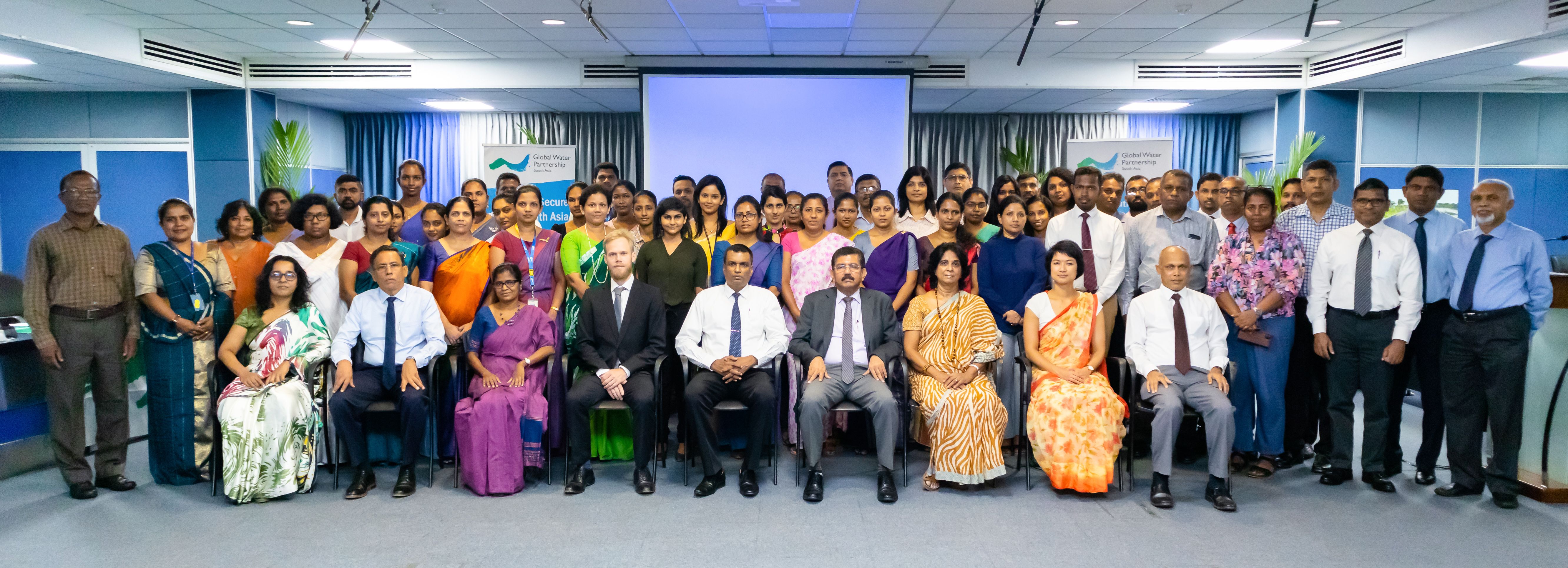The workshop was organised by the 2nd Readiness Project Management Unit (PMU) in collaboration with GWP SAS and the Climate Change Secretariat (CCS) of the Ministry of Environment, Sri Lanka. The Resource Persons were drawn from GWP, which is the Delivery Partner of the 2nd Readiness Project in Sri Lanka. The workshop aimed to strengthen the capacities of Direct Access Entities (DAEs), National Designated Authorities (NDAs) and Green Climate Fund (GCF) project programming stakeholders to access GCF climate financing. Accordingly, the workshop participants comprised officials from the NDA, as well as key Ministries, government, and non-governmental agencies as well as private banks.
During the opening session, key speakers noted that while Sri Lanka is highly vulnerable to climate change, it has not been able to tap the climate financing available through GCF adequately. It was hoped that with the capacity building provided through this technical workshop, the country can build up a strong pipeline of GCF concept notes, to meet the NDC targets as well as the net zero targets by 2050.
During the technical sessions, participants received an in-depth understanding of the GCF investment Criteria, operational modalities, and procedures for delivering climate finance through different GCF funding windows. Overall, the technical sessions followed the 4-step methodology introduced by the World Meteorological Organisation (WMO) to guide the identification and selection of scientifically grounded climate adaptation actions.
- Step 1 is to identify the area of focus where the NDA explained national climate-related priorities in Nationally Determined Contributions (NDCs) and the National Adaptation Plan (NAP).
- Step 2 is identifying relevant climatic contributing factors and data, which was the focus of the workshop. The participants were introduced to various tools available to understand and analyse the climate rationale, which is a key component of any concept note to GCF. Technical experts from WMO and Swedish Meteorological and Hydrological Institute (SMHI) presented two different free online tools named Climpact and Climate Information Platform (CIP), which are convenient to use and can be used to strengthen the evidence behind the climate rationale. Further, the experts from the Meteorology Department of Sri Lanka introduced both climatic and non-climatic data available in Sri Lanka.
- Step 3 - Identify relevant non-climatic contributing factors and Step 4 - Select effective climate actions that have been fulfilled through the rest of the sessions where the participants were grouped based on their preference of climate action. There was extensive group work and presentations and the participants finally developed five different project ideas that could be developed into GCF concept notes in their chosen sector. These ideas were presented in a mock pitch session to the NDA in a role-play for feedback.
The technical sessions were supplemented by a field visit to Puttalam District in Sri Lanka. There the participants observed two project sites located at Kachchirawa-Kuddetiyawa at Nattandiya Divisional Secretariat and Rambakenayagama and Maha Medduma at Navagaththegama Divisional Secretariat implemented under a GCF-funded project named Climate Resilient Integrated Water Management Project (CRIWMP).
The CCS hopes to build on the momentum of this workshop by establishing a project development working group, drawing from among the workshop participants and consisting of experts from each sector, accredited entities, the private sector, and if necessary, the community-based organisations (CBOs). It is expected to develop three GCF concept notes as a final deliverable, out of the five project ideas after careful selection and refinement. A manual to guide stakeholders to identify key project areas and to prepare concept notes is being prepared based on the resources shared during the workshop.
